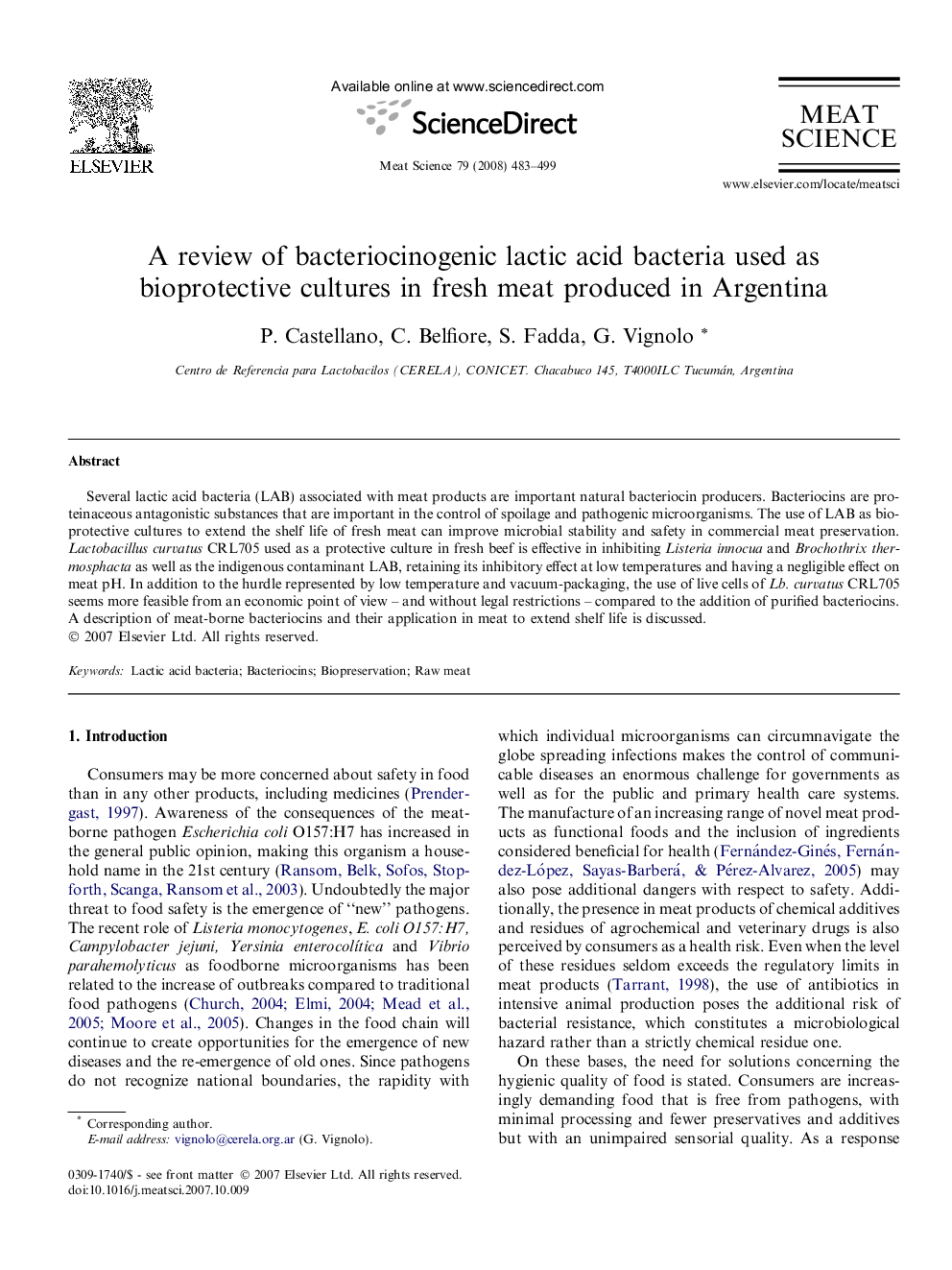| Article ID | Journal | Published Year | Pages | File Type |
|---|---|---|---|---|
| 2451597 | Meat Science | 2008 | 17 Pages |
Several lactic acid bacteria (LAB) associated with meat products are important natural bacteriocin producers. Bacteriocins are proteinaceous antagonistic substances that are important in the control of spoilage and pathogenic microorganisms. The use of LAB as bioprotective cultures to extend the shelf life of fresh meat can improve microbial stability and safety in commercial meat preservation. Lactobacillus curvatus CRL705 used as a protective culture in fresh beef is effective in inhibiting Listeria innocua and Brochothrix thermosphacta as well as the indigenous contaminant LAB, retaining its inhibitory effect at low temperatures and having a negligible effect on meat pH. In addition to the hurdle represented by low temperature and vacuum-packaging, the use of live cells of Lb. curvatus CRL705 seems more feasible from an economic point of view – and without legal restrictions – compared to the addition of purified bacteriocins. A description of meat-borne bacteriocins and their application in meat to extend shelf life is discussed.
